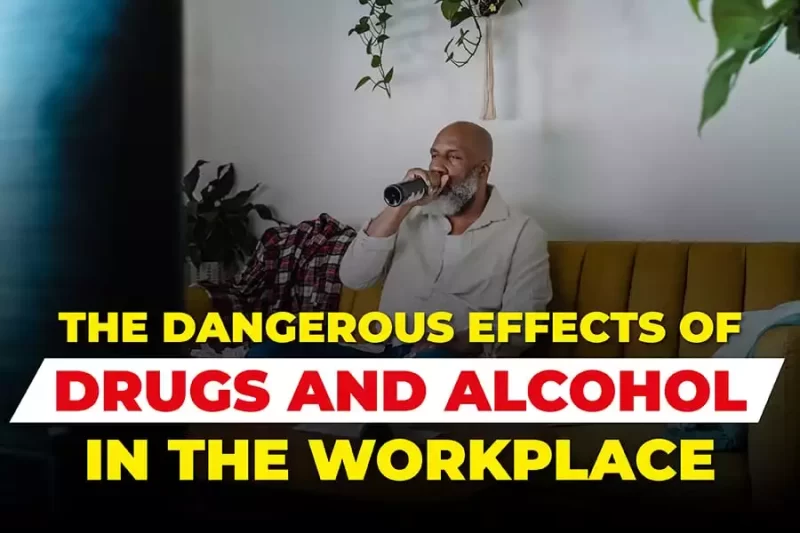When young people begin to use drugs and alcohol, they can fall into very dangerous habits. Many of them do this because they simply don’t understand the real dangers that these substances pose, or perhaps because they see others doing it without any negative consequences. These nasty habits, when not resolved in the individual’s youth, will then manifest into a serious problem as the person grows older, and is often seen in many workplaces. That’s why many workplaces incorporate reasonable suspicion training to help combat this issue.
There are many people in the workplace today who have been affected by drug and alcohol use on the job. It is important for workers to be able to recognize these risks so that we can all work together toward a healthier environment for everyone involved. Not only is it illegal to possess, use, or sell drugs on the job, it is also dangerous. There are many serious health risks associated with the use of drugs and alcohol in the workplace, and they can put you or your coworkers at risk of serious injury or even death.
To help you out with this, let’s take a closer look at some of the effects that drugs and alcohol can have on a person’s career, co-workers and the business or organization that they work for. We’ll dive into great detail on the physical, mental, and emotional consequences of these dangerous habits so that you can learn more about what you need to do if you are ever put in a situation where someone is engaging in drug or alcohol use on the job.
Consequences Of Drugs And Alcohol In The Workplace
The following are ten of the most common negative effects that drugs and alcohol can have on a person’s work life:
1. Increased risk of accidents and injuries:
Drugs and alcohol not only increase your likelihood of being involved in an accident, but they can also make it difficult to react quickly and effectively when things go wrong. If impaired in any way by drugs or alcohol on the job, they are putting yourself and others at risk of serious injury or even death.
2. Loss of productivity:
One of the biggest consequences of drug and alcohol use in the workplace is a loss of productivity. This can affect colleagues, as well as the manager and the rest of the organization. When employees are not performing their best work, it can lead to missed deadlines, lost revenue, and higher costs associated with production.
3. Increased absenteeism:
Not only will drug and alcohol use reduce skills and abilities while on the job, but it can also affect the ability to get there in the first place. Drugs and alcohol can lead to increased absences, which in turn can impact the entire team’s productivity.
4. Increased risk of infections:
In addition to affecting mental and physical performance, drugs and alcohol can also increase the risk of contracting an infection or virus on the job. This is because drug and alcohol use affects your immune system, making it more difficult to fight off illness or disease.
5. Reduced focus and concentration:
When under the influence of drugs or alcohol at work, it will be much more difficult to stay focused on tasks that need attention. Along with decreased productivity, low levels of focus and concentration can also affect the quality of your work and increase the risk of errors or accidents.
6. Increased stress:
Not only can drug and alcohol use impact relationships with co-workers and managers, but it can also lead to increased levels of stress on the job. This can take a toll on mental health in general, leading to symptoms of anxiety and depression, which will make it difficult to perform well at work.
7. Damaged reputation:
When engaging in drug or alcohol use at work, there is a good chance that word will get around and people may start looking down on individuals as a result. This can damage reputation not just at work, but in the professional network as well, making it more difficult to advance careers.
8. Loss of trust:
Colleagues, managers, and teams place a lot of trust in each other when they show up for work every day. Abusing drugs or alcohol on the job can seriously undermine that trust and damage relationships with co-workers and higher-ups.
9. Legal consequences:
In addition to all of the other negative effects that drug and alcohol use can have lives, it can also land the person, coworkers and the company in legal trouble if things get out of hand. This might be firing from the job or even criminal charges depending on the kind of activity taking place at work and how serious it is.
10. Health risks:
Studies have shown that drugs and alcohol can have a range of negative health effects, from liver damage to addiction. Should someone be abusing drugs or alcohol on the job, it might be putting their long-term health at risk as well.
Tips For Avoiding The Negative Effects Of Drug And Alcohol Use In The Workplace
- Be honest with yourself about your drug or alcohol use, and come up with a plan to address it.
- Avoid social or work situations where drugs and alcohol are likely to be present or accessible.
- Schedule regular check-ins with your manager to discuss how you are doing on the job and if there are any concerns with your performance or activities at work.
- Maintain strong support systems both inside and outside of work, including friends, family members, and professional contacts who can help you stay on track and avoid substance abuse at work.
- Get involved in activities or hobbies that can help you manage stress and stay focused on your goals. This might include exercise, meditation, or other forms of self-care and relaxation.
Conclusion
In conclusion, drug and alcohol use at work can have a range of serious negative effects, from reduced productivity to legal consequences. The best way to avoid these negative effects is to be honest with yourself about your drug or alcohol use, and take steps to manage it proactively.
This may include avoiding social or work situations where drugs and alcohol are present, getting regular check-ins with your manager, and seeking professional help if necessary. With the right support and resources in place, it is possible to take control of your drug or alcohol use at work and avoid all of the negative consequences that it may bring.










